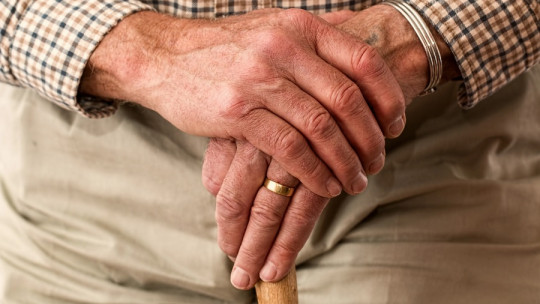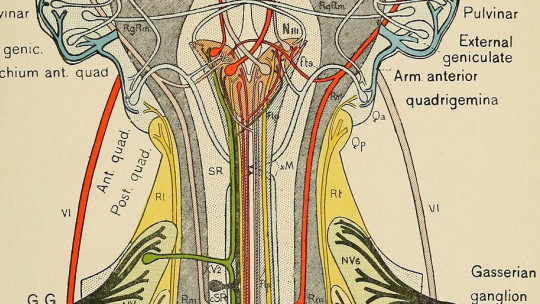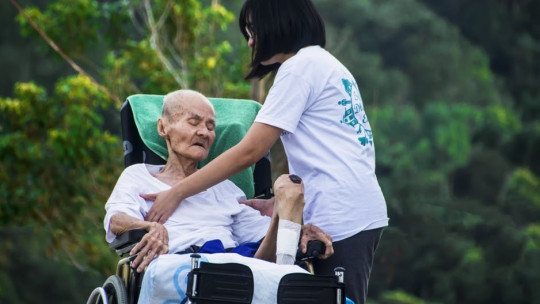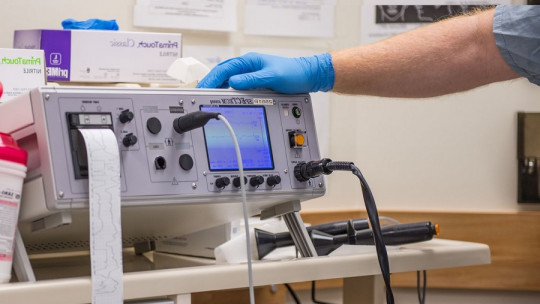Time doesn’t stop and the years end up weighing you down. Many times, children, grandchildren and other loved ones consider placing our elders in residences where they can be given the attention and care they need.
However, this is not an easy decision nor can we take it lightly. Placing our elders in a nursing home always raises doubts and mistrust in us, since we fear that our loved one will not be treated well.
For this reason today we are going to see a series of quality criteria to choose a residence for an elderly person and that we must take into account before making a final decision, in addition to allowing us to know if we are leaving our loved one in good hands.
The importance of quality criteria when choosing a residence for the elderly
As people age, we rely less on ourselves and require more needs. When we reach old age, we lose motor skills and our brain is no longer what it was , which makes us more prone to accidents. Naturally, old age is not the same for everyone, but there are still certain things we cannot do and we need our children, grandchildren and other relatives to lend us a hand.
The problem is that in the society in which we live it is difficult to be able to take care of elderly people and, at the same time, work, take care of children or take care of many other chores. This is why many relatives of the elderly consider placing them in a nursing home, not because they no longer want it but because they cannot take care of them. Their degree of dependency may be so high that, unless we are professionals, we will not be able to meet their needs and, therefore, they will feel unwell.
Nursing homes are the best alternative to guarantee the best care for our elderly grandfather or father. They are no longer the cold centers of yesteryear but, now, the residences are places where there is good food, they are given a lot of attention, physical and intellectual stimulation and efforts are made to maintain contact with their families while making new friends within the center. The residences have gone from being sixties-style hospitals to authentic hotels
Unfortunately, there are many cases of residences that have committed abuses against their residents. The workers, taking advantage of the weakness of the elderly, have denied them various rights or have not given them adequate attention while they continued to be paid. This is why the decision to admit a loved one to one of these centers can be so scary because we fear that the elderly person will end up being mistreated.
Fortunately, the 10 quality criteria for choosing a residence for an elderly person that we are going to see in this article They will guide us in making a decision, ensuring that we leave our loved one in good hands
What types of nursing homes are there?
Before seeing the quality criteria for choosing a residence for the elderly Let’s get familiar with the different types of centers to know where to start looking We can categorize them based on two criteria: ownership and the degree of dependence of their residents.
1. Ownership
Depending on the ownership of the center we can distinguish three types of residences, which are the following.
1.1. Public
public residences They are those that depend on some public body, such as the autonomous community or the city council In the case of Spain, to be able to enter one of these residences, some requirements must be met, established by the Dependency Law, in addition to those that may be contemplated by the autonomous community.
1.2. Concerted
Arranged residences They are managed by private companies but, in part, their places are public or reserved by the public administration Normally, the requirements to enter them are the same as for public residences.
1.3. Private
They are residences managed entirely by private companies. Normally, the only requirement that must be met to enter is being able to pay the fees they request
2. Degree of dependency
Old age does not affect everyone equally. There are people who reach old age with relative autonomy, without many physical or cognitive problems. Instead, In other cases the person has a high degree of dependency and needs to be monitored and cared for most of the day Based on this we can find the following three types of residences.
2.1. Residences for autonomous seniors
These are residences whose residents are older people who They do not need much help as they have a high degree of autonomy They can lead a normal life without constantly resorting to the center’s professionals.
Usually, the residents of these centers are there because they or their family members did not want them to be left alone in their homes, fearing that if an accident happened, no one would be able to help them in an emergency.
2.2. Mixed residences
In mixed residences There are both self-employed residents and dependent elderly people The main advantage of these centers is that they serve both types of populations and, as in old age one can lose faculties very quickly, the residence can be adapted as needs increase.
23. Assisted living
They are centers that They are specifically aimed at caring for older people who suffer from some type of serious impairment, both psychologically and physically There are those specialized in specific diseases, such as different types of dementia, swallowing problems, reduced motor skills…
Criteria and advice for choosing a good residence
Once we have seen the different types of residences that exist, we can move on to the criteria and advice that we must take into account when choosing one. Regardless of how autonomous and agile our loved one is, what we want is for them to end up in a center where, if something happens to them, they will know how to help them. This is why we must be cautious and make sure that we are choosing a good center.
1. Assess what options there are
Before even going to see residences we must ask ourselves what options we have. It may be that our loved one does not need to be admitted to one of these centers because there is a family member or friend who can take care of them and prefers it that way.
Although entering a residence does not mean disconnecting from the family or the social environment, it is true that, If you do not know how to manage it, the person may become isolated from their loved ones Although this risk associated with nursing homes is relatively low, we must take it into account before deciding to place our senior in one.
2. Visit the residence
Before deciding we must look at what residences there are. We cannot enroll our senior in the first center we find, since that place will probably be where he will live the rest of his days. The best way to check what a residence is like is to go to it and see what services and infrastructure it has The first impression of the place can offer us a lot of information about the residence and help us make a decision.
Being at the center we must ask the workers to show us the facilities and see if they feel comfortable doing so. If this is not the case, it means that they have to hide something, such as poor facilities or abuse against the elderly, such as tying them to the bed or not cleaning them.
Elderly people have fragile health, associated with a weak immune system, which, Hygiene, nutrition and good treatment are essential aspects to protect them from any disease By going to the center we can see if this is respected and also if the workers behave kindly towards the elderly.
3. Find out about the operation and hours of the center
No matter how healthy our eldest is, moving to a residence with new people is a very intense experience, full of questions, doubts and fears. This experience can be truly traumatic if poorly managed. This is why, when we contact the residence, It is essential to ask if there is any type of reception protocol or that the adaptation of residents is facilitated
It is also important to know how the center guarantees and encourages the autonomy of its residents, including physical and occupational therapy programs, as well as exercise sessions and other activities. It is advisable to ask if there are activities that are carried out in an individualized and personalized way to the needs of the resident and if they receive continued attention.
One aspect that we must not forget to ask is whether the center satisfies all the social and emotional needs of residents The center should not be limited to “taking care” of the residents by feeding them, helping them with their hygiene and little else. Social activities must be carried out, both with people from the center itself and with people from outside, in addition to facilitating visits from family members.
The residence must provide us What are the ways for the residence to contact the relatives of the admitted person in case of emergency? In addition, they must give us some contact so that the family can know the health status and needs of their elder.
Also, we should ask workers about how easy it is for residents to go out for walks, visit friends and establish contact with the outside world. It is essential to know how easy it is to stay in contact with the outside environment, since your self-esteem depends greatly on your social relationships.
4. Location
When looking for a residence it is very important that it is not too far from where our eldest lived. If possible, we should select a residence that is close to your family and friends so that he can visit him frequently and that he himself can make contact with his former neighbors and acquaintances from the neighborhood.
It is not at all advisable to look for a residence very far from your old home, since we run the risk of the elder becoming isolated. By not having friends, family and neighbors nearby, the elderly may not have the strength to socialize with the new people they have just met in that same residence. This will harm his mental health.
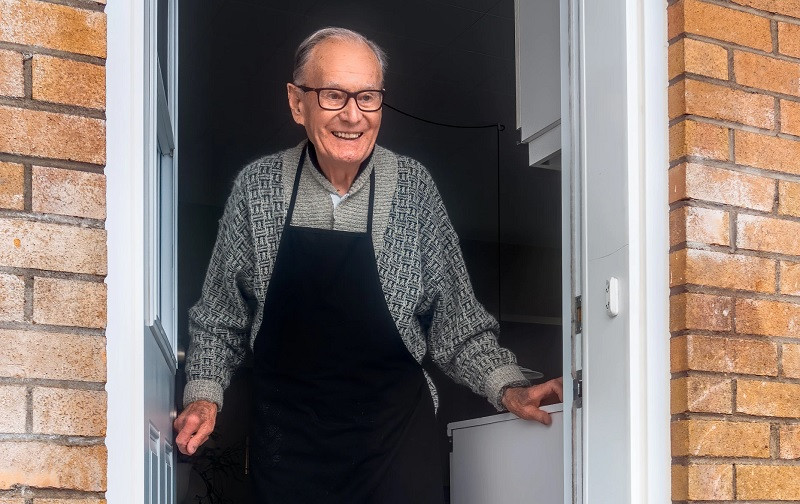
5. Check if the center information is visible
Another aspect that gives us the most confidence about a center is when it has all its licenses placed in visible places. Whether at the entrance, at reception or somewhere, We must be able to see what regulations it complies with, what recognition it has from the public administration and if it has won any awards for its services
The center itself can provide us with this information as soon as we visit its website or when we contact it. However, if this is not the case, we must ask what it does.
If the center complies with everything necessary, it is most likely that it will not have any impediment in showing us its licenses. If you do not provide us with this information, there is reason to worry and think that something illegal is really being committed in that place.
In Spain, among the licenses that this type of institutions must comply with, we have the following
5.1. Activity and Opening License
It demonstrates that the center complies with security measures, both the physical institution itself and the activities carried out there. This license is granted by the city council.
5.2. Authorization of Operation and inclusion in the Registry of Social Centers and Services of the Community Government
Through their inspection services, the autonomous communities must control that the residences comply with the conditions set. Furthermore, they must check that these centers have the necessary personnel to be able to carry out their activity
5.3. Health Authorization for the Food Preparation Service and Collective Canteens
This authorization is essential in any public establishment where food is handled, served or produced. It is the legislation that certifies what requirements are necessary to carry out restoration activities
5.4. Authorization of the Health Department of the Autonomous Communities
This authorization demonstrates that the center complies with the standards established to provide medical and nursing services to the public
6. Correct conditioning
It is normal that in old age we have limited motor skills, so any architectural obstacle can significantly reduce our well-being. For this residences must be designed in such a way as to avoid such obstacles , such as steps and excessive slopes. Furthermore, if the center has more than one floor, it should have at least one elevator installed.
Corridors must be of adequate width, with railings on their sides and with correct lighting. There must be telephones not only in the rooms, but also in the hallways and other common places, in addition to having a speed dial number that notifies reception or emergencies in case of an accident.
Ideally, each resident should have their own room, but if this is not the case, there should be at most two beds in each, placed in such a way that the privacy of its residents is respected. There must be a good heating system in the rooms Each room must have a sink, a toilet and a shower.
Sinks must be adapted for people in wheelchairs or other motor limitations, and must also have hot water. The shower must have a closing system that allows it to be opened from the outside in the event of an accident.
Must Let’s see if they have gardens or outdoor spaces so that residents can if they cannot go outside, they can at least clear their head by taking some fresh air inside the premises.
7. Food
Given that in the elderly there may be any digestive problem that affects the life of the affected person, it is essential that the center has an individualized food service In addition, we must find out if there is a possibility for residents to order food between meals or if, on the contrary, they must stick to specific times.
We must ask who makes the menu, if the residence itself is responsible for it with its kitchen service and a nutritionist or if, on the contrary, the food is entrusted to a catering company.
8. Ask about the services offered
In nursing homes, it is common for medical emergencies to occur, which is why it is preferable to that these centers have their own health personnel to address these problems as quickly as possible
The professionals that must be in the residences are doctors, nurses, nursing assistants, social workers, occupational therapists, physiotherapists and psychologists. The ideal is for these services to be their own and for the company to demonstrate it.
It often happens that many residences claim to have these services, but what really happens is that they are provided by a nearby health center. This is not a bad thing, but it is preferable that the residence already has these services integrated, since it will offer more individualized and efficient care in the event of an emergency.
But not all important services fall into health care. It’s fundamental know what the motor skills and occupational therapy workshops are like, in addition to knowing what recreational activities are done such as excursions, plastic arts, macramé or aqua aerobics.
9. Read the contract
As with any other service, we must read the contract. It is preferable to request this document as soon as you go to a residence for the first time and, if possible, take it home to read it more carefully The importance of this lies in the fact that we are going to leave our loved one in their hands and, if they do not comply with what is stipulated in the contract, we can take legal action.
Among the aspects we should look at are when billing begins, what the monthly amount is and what services are included. The document must specify that The guard and custody of all personal and health information of the resident is assumed, in accordance with the Data Protection Law (Spain).
10. Price and services included
As we can imagine, nursing homes are not cheap. On average, in Spain, its price is around €1,700 per month. If we find a residence with a monthly price much lower than this, it is best to discard it because, surely, it does not offer all the basic services for the appropriate care of elderly people.
The ideal is to request a fixed price or quote. In some residences there are extra services, such as hairdressing or podiatry, which are usually charged separately, something that we discover at the end of the month when they send us the invoice. With a closed budget we will know exactly what is included in the price

